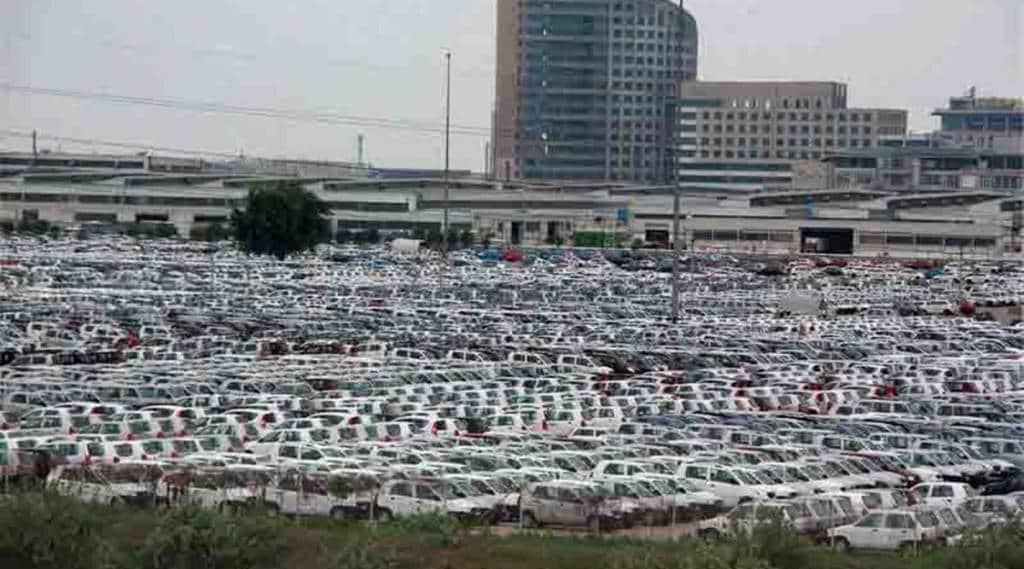The automobile sector’s problems seem to be multiplying, with the latest worry for the sector is the interest rate hike, a move that would make vehicle mortgages expensive.
The rate hike would be yet another dampener and it adds to the myriad issues that plague the sector, including supply chain constraints due to the pandemic, rising fuel and raw material costs and chip shortage among others, industry captains said.
“The RBI’s move of increasing repo rate by 40 basis points (BPS) has clearly taken everyone off guard. This move will curb excess liquidity in the system and will make auto loans expensive. While the passenger vehicle (PV) segment may be able to absorb this shock due to long waiting periods, two-wheeler segment, which has been a non-performer due to underperforming rural market, vehicle price hikes and high fuel costs, it will not be able to take one more blow of high vehicle loan costs,” Federation of Automobile Dealers Associations, India President Vinkesh Gulati said.
“Certainly, this move will apply a certain amount of brake on auto retail and dampen the sentiments further,” he added.
ADA is the apex body of the automobile retail sector, representing more than 15,000 automobile dealers of two- and three-wheelers, passenger cars, utility vehicles, commercial vehicles and tractors among others, in the country.
According to Hemal Thakkar, Director, Crisil Research: “This will have a marginal impact on automotive companies as their borrowing costs (cost of capital) would go up to a certain extent. So, the pass through in terms of cost will be pretty limited or negligible”.
“The cost of financing for the customer would immediately go up and segments like small cars, commuter two wheelers and small commercial vehicles (especially for first-time buyers) will get impacted on account of the same. This will create further challenges for segments like commuter two-wheelers and small cars where the demand scenario is already challenging,” Thakkar added.
Prices of petrol and diesel have been steady since April 6, after oil marketing companies hiked prices by Rs 10 per litre through 14 price hikes across major cities. On Wednesday, petrol prices were left untouched for the 27th continuous day.
“There will be an impact on loans, and as most vehicles are bought on equated monthly installments (EMIs), and these being spread over a long period of time, the effect would be minimal. Loan outgo for consumers would go up or their EMI tenures would increase,” Sudhir Mehta, chairman at Pinnacle Industries and EKA (an electric vehicles and technology company) said.
“While a rate increase is never good from any industry’s point of view, with the inflation being so high, especially on commodities, the RBI had little choice but to increase the rates. What’s important is that RBI also said it will not be very restrictive in the monetary policy and will not squeeze liquidity from the market,” Mehta, who is also the president of Mahratta Chamber of Commerce, Industries and Agriculture, added.
Also Read: Skoda Kushaq price hiked again: Check new vs old price list here
Apart from inflation, the other worry for the automobile segment is the huge supply-chain disruptions and a combination of these are roadblocks for the sector, which was slated to grow well in this financial year.
“The Reserve Bank increasing interest rates was on the anvil, however, the timing came as a surprise. The market had factored in a hike, and with multiple increases in vehicle prices over the past many months, another 0.5%-1% increase in prices would have a sentimental impact, but we don’t expect any material impact,” Sunil Bohra, chief financial officer at Minda Industries, said.
“For vehicle buyers, this would result in their EMIs (equated monthly installments) on loans or tenure of loans moving up. I don’t see this denting vehicle sales in the short-term,” Bohra added.
